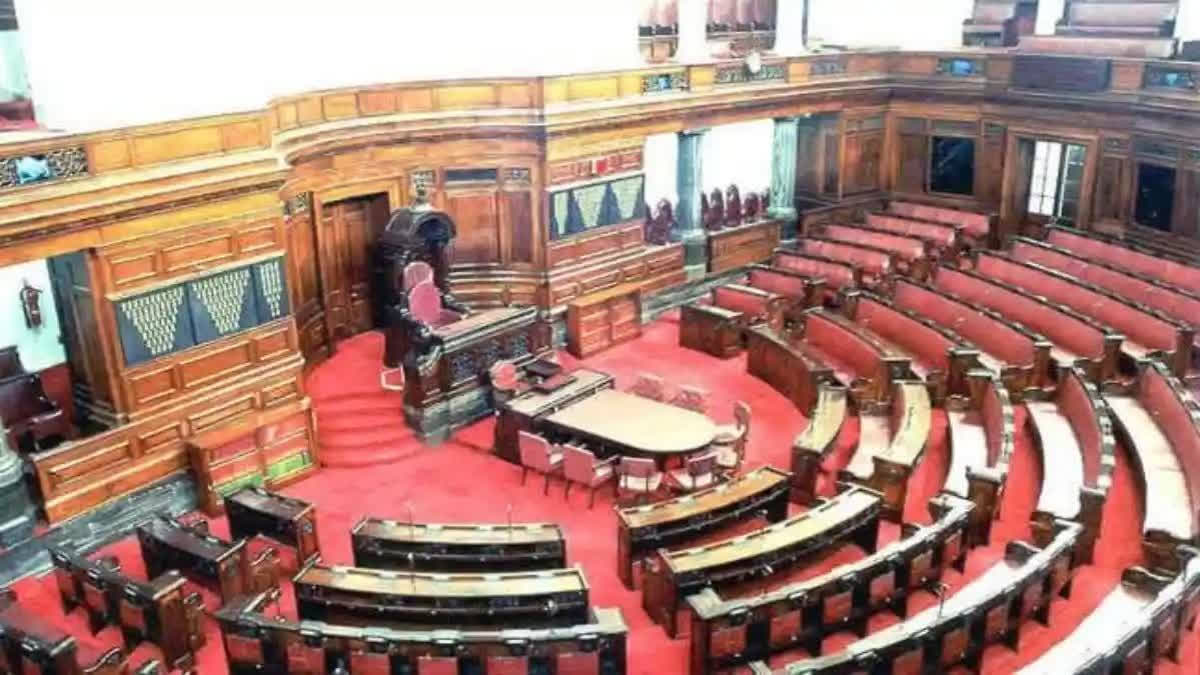Srinagar: Following the completion of the Jammu and Kashmir Assembly elections, the region is set to regain its representation in the Rajya Sabha after a hiatus of over three years and eight months. Newly elected Members of the Legislative Assembly (MLAs) will vote to select four representatives for the Upper House of Parliament once the Election Commission of India (ECI) announces the schedule, a J&K Election Commission official confirmed.
Currently, Bharatiya Janata Party (BJP) leader Ghulam Ali Khatana is the only Rajya Sabha representative from Jammu and Kashmir, though he holds his seat as a nominated member of Parliament. The four seats allocated to J&K have been vacant since February 2021, when the last batch of representatives completed their six-year terms without replacements due to the absence of an elected Assembly.
The Jammu and Kashmir Reorganization Act of 2019, enacted following the abrogation of Article 370, provided the Union Territory with a 90-member Assembly, five Lok Sabha seats, and four Rajya Sabha seats. Before the reorganisation, J&K had six Lok Sabha seats, but this was reduced to five after Ladakh was carved out as a separate Union Territory with its parliamentary representation.
The last Rajya Sabha election for Jammu and Kashmir was held in February 2015. At that time, the region was governed by a coalition of the Bharatiya Janata Party (BJP) and the People's Democratic Party (PDP). The BJP-PDP alliance secured three of the four seats allocated to J&K, while the National Conference (NC) and Congress coalition won the fourth. Those elected were Fayaz Ahmad Mir and Nazir Ahmad Laway from the PDP, Shamsher Singh Manhas from the BJP, and former J&K Chief Minister Ghulam Nabi Azad from the Congress.
The balance of power in the 2015 Assembly heavily influenced the Rajya Sabha election outcome. The PDP held 28 MLAs, the BJP 26, while NC and Congress had 15 and 12 MLAs, respectively. Minor players, including the People's Conference, the CP(M), and Independent candidates, made up the remainder of the Assembly. Chander Mohan Sharma, the BJP’s second candidate, failed to secure a seat.
All four Rajya Sabha members completed their terms in February 2021, and since then, J&K has had no elected representatives in the Rajya Sabha.
"The upcoming election of four Rajya Sabha members is expected to play a crucial role in shaping J&K's legislative presence at the national level. However, the process to fill the vacancies can only begin once the newly elected MLAs are sworn in. The composition of the Assembly will determine, which parties secure these seats," a senior J&K Election Commission official told ETV Bharat on the condition of anonymity.
Former Rajya Sabha member PDP's Fayaz Ahmad Mir said, "Finally, J&K will regain its Rajya Sabha membership. If elected as an MLA, I will vote according to my party's decision. I am hopeful of being elected as the MLA from the Kupwara constituency this time. Choosing a candidate depends on the composition of the Assembly. We have to wait until the results are out."
He added, "During my tenure as a Rajya Sabha MP, my former colleague Nazir Laway and I staged a protest in front of Parliament over the issue of the abrogation of Article 370 in Jammu and Kashmir. We were able to become the voice of Kashmir both inside and outside Parliament." Mir had earlier this year contested unsuccessfully for the Baramulla Lok Sabha seat.
The political landscape in Jammu and Kashmir has evolved significantly since 2015. While the BJP has maintained a strong presence in Jammu, the PDP has faced setbacks in the region, particularly after the collapse of the BJP-PDP coalition in 2018. The National Conference and Congress have also managed to broaden their influence, while smaller parties and independents, including those backed by Engineer Rashid's Awami Ittehad Party (AIP), have gained prominence.
Jammu and Kashmir has previously experienced periods without representation in the Rajya Sabha. From 1989 to 1996, during the President's Rule, the region had no Rajya Sabha members from 1992 to 1996. After the 1996 Assembly elections, the NC-led government restored the region’s presence in the Upper House, with notable figures such as Ghulam Nabi Azad and Dr Karan Singh being elected.
Ghulam Nabi Azad served almost continuously in the Rajya Sabha from 1996 to 2021, with a brief gap when he was Chief Minister of J&K from 2005 to 2008.
Former BJP RS MP Shamsher Singh Manhas claimed that the party will send three MPs to the RS once the legislative assembly is constituted. "My experience as RS MP was fantastic and my attendance was over 96 per cent and even PM Modi had praised my working style", he said.
Manhas further stated that the BJP has not finalised the candidates, who will contest for the RS membership. “Though I am vying for the second term, the final call is to be taken by the party. And I am sure based on my extraordinary performance, my name will be put forward," he added.
Read more: Kashmir People Have Written A New Chapter Of History: JK LG On Assembly Elections



